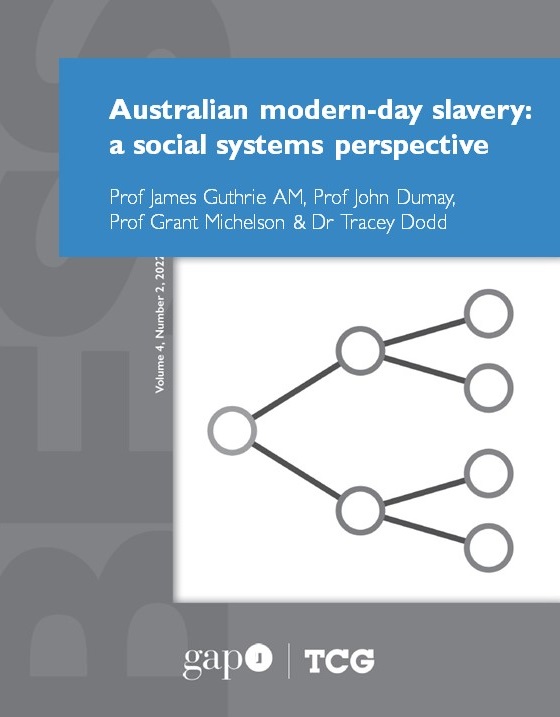Australian modern-day slavery: a social systems perspective
DOI:
https://doi.org/10.54337/ojs.bess.v4i2.7746Abstract
Modern slavery breaches the fundamental human right of freedom, and eliminating it will require exceptional cooperation between people. Further, the complexity and opacity of global supply chains make modern slavery a real risk for companies that engage in large-scale international production and distribution. Specific sectors like electronics, hospitality and retail are at the most risk. Many Australian companies are implicated in modern slavery, and in response, the Australian Government has acted to address modern slavery in Australian and global supply chains through legislative means. We review these developments nationally and internationally, including Australia's Modern Slavery Act 2018, along with evidence that since the Act was implemented, reporting from companies has been uneven, with many not even meeting minimum disclosure expectations. However, this should be unsurprising due to widespread opposition by large companies in the lead-up to passing the Act.
Moreover, a national effort can only have a limited impact. Researchers at Macquarie and Adelaide Universities explore how adopting a social system perspective might strengthen the interrelationships between governments, companies, civil society, and academia and how that perspective might shed new light on developments in theory and practice that could help to eliminate modern slavery. We firmly endorse this perspective, which is underpinned by a cooperative approach to building social systems that work to eliminate modern slavery.

Downloads
Published
Issue
Section
License
Copyright (c) 2022 Prof James Guthrie AM, Prof John Dumay , Prof Grant Michelson , Dr Tracey Dodd

This work is licensed under a Creative Commons Attribution-NonCommercial-NoDerivatives 3.0 Unported License.
This journal provides immediate open access to its content on the principle that making research freely available to the public supports a greater global exchange of knowledge.
Articles published in BESS follow the license Creative Commons Attribution-NonCommercial-NoDerivs 3.0 Unported (CC BY-NC-ND 3.0)
Authors retain copyright and grant the journal right of first publication with the work simultaneously licensed under a Creative Commons Attribution License: Attribution - NonCommercial - NoDerivs (by-nc-nd).
Further information about Creative Commons




